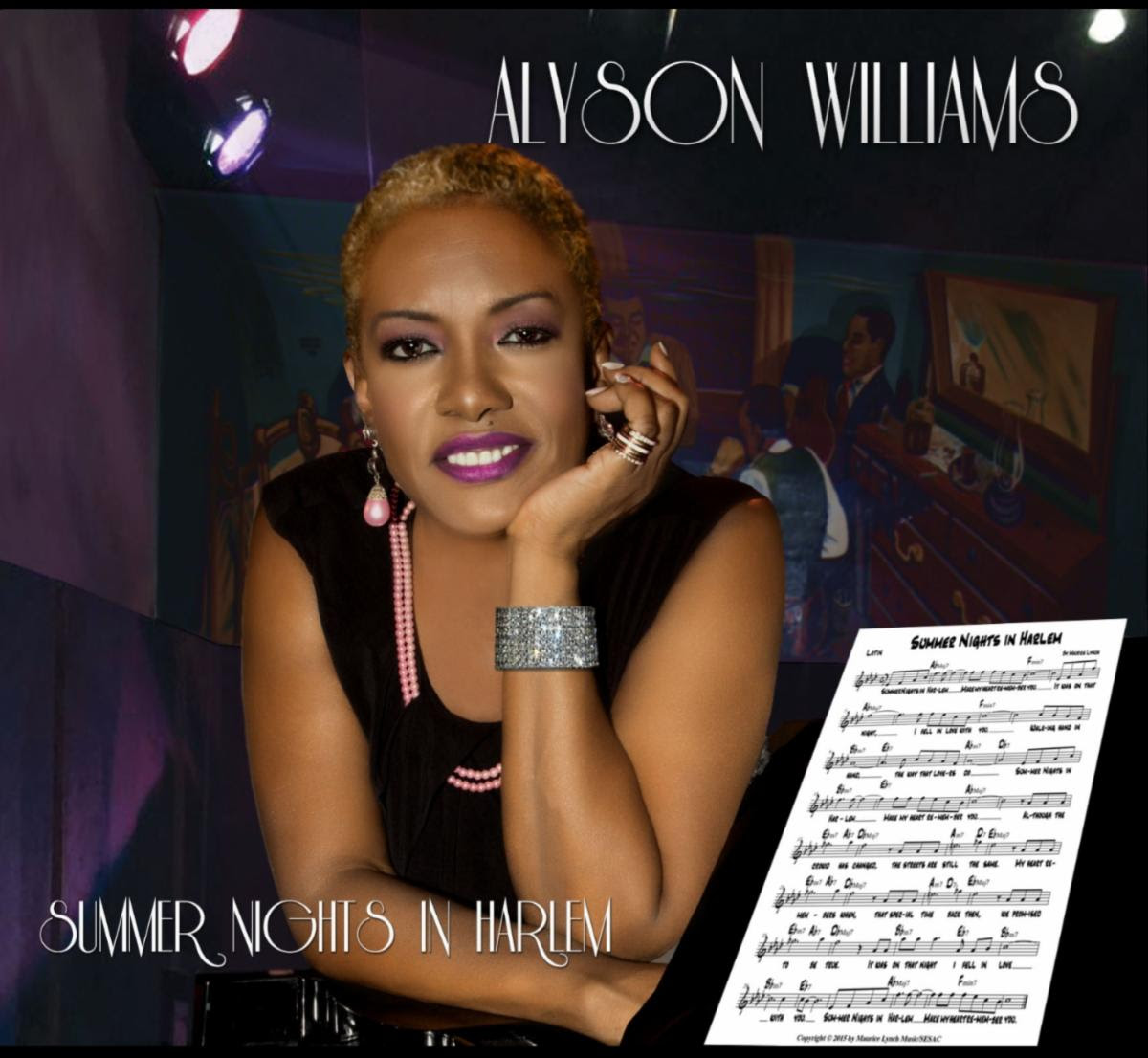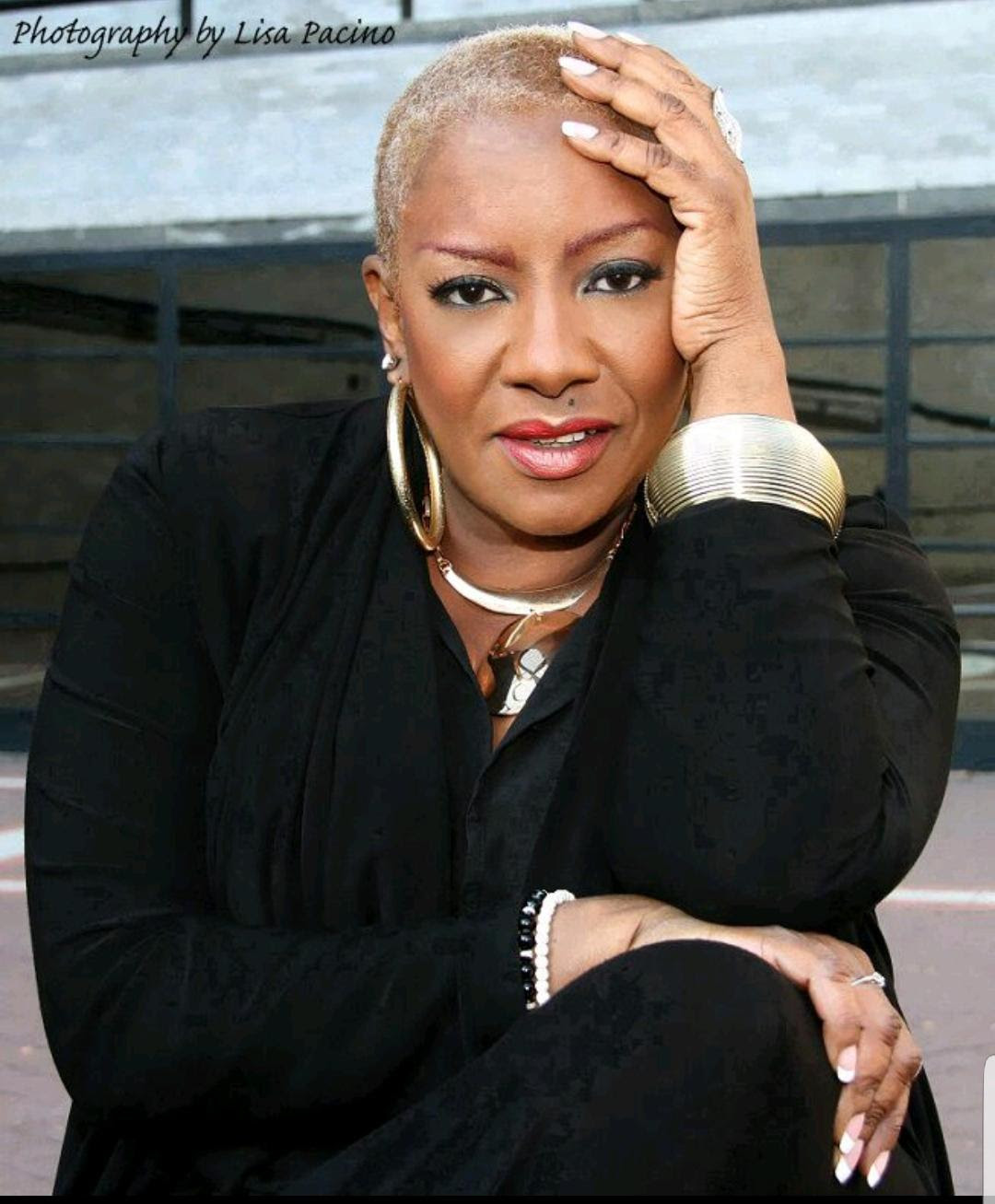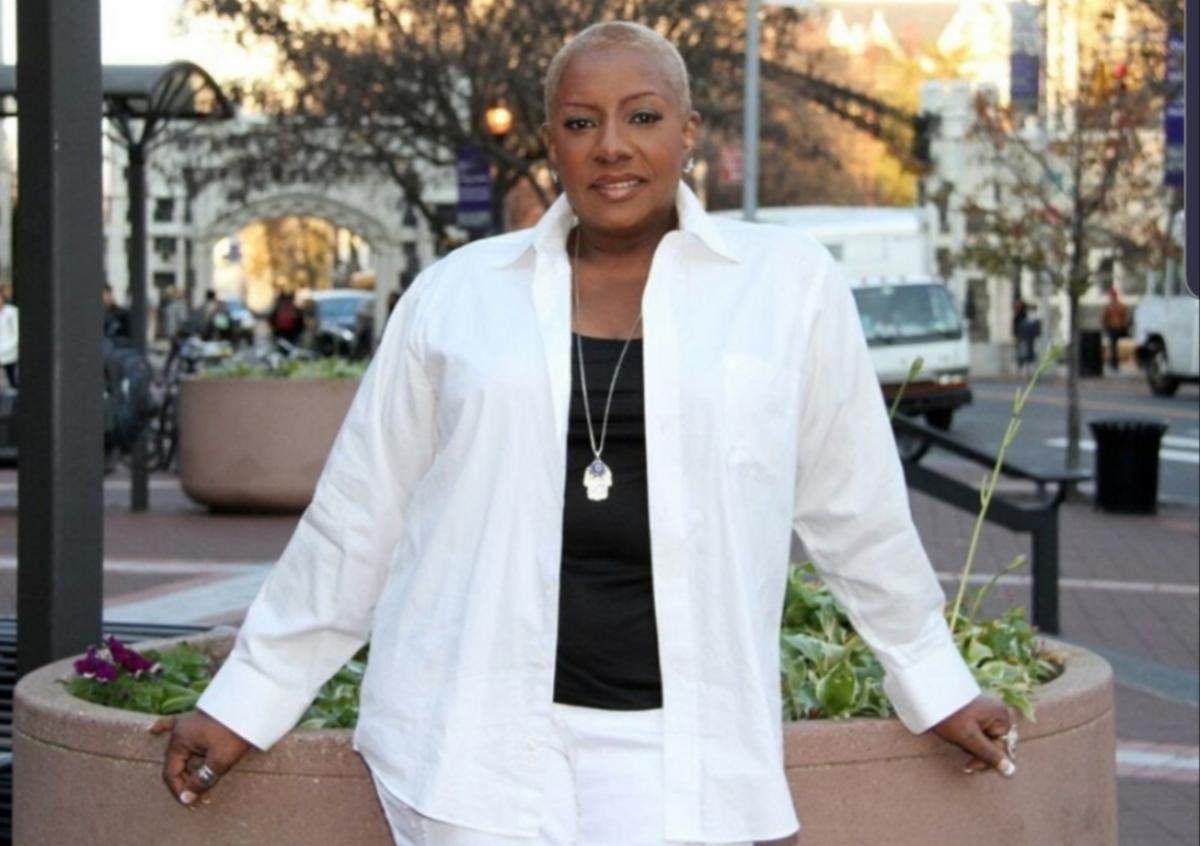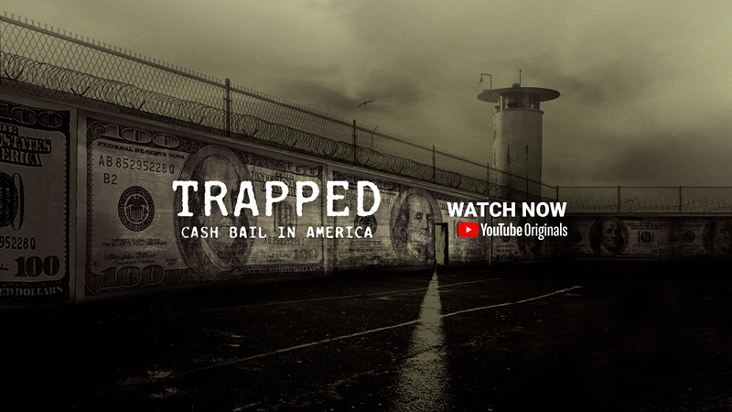
This project is an Instant Classic! A Film Classic, A Social Studies Classic, A Race Relations Classic and yes a Hip Hop Classic!
But there is so much more and we will be unpacking this amazing gift to Entertainment for days and days to come. But right now let’s just get to know the creator “Radha Blank” and find out how she developed this bold cinematic masterpiece.
Radha, a down-on-her-luck NY playwright, is desperate for a breakthrough before 40. But when she foils what seems like her last shot at success, she’s left with no choice but to reinvent herself as rapper RadhaMUSPrime.
The Forty-Year-Old Version follows Radha as she vacillates between the worlds of Hip Hop and theater on a quest to find her true voice.
Winner of the Directing Prize at The 2020 Sundance Film Festival, The Forty-Year-Old Version is a hilariously candid and deeply personal debut from writer/director Radha Blank.
A fresh addition to the New York City slice-of-life canon shot in lush black and white 35mm, Blank’s film is an ode to the unfulfilled, and those whose adversity gives them a one-of-a-kind story to tell.
A Conversation With Radha Blank
THIS IS A VERY PERSONAL AND AUTOBIOGRAPHICAL FILM FOR YOU. HOW DID THE DETAILS OF YOUR LIFE WEAVE INTO THE FORTY-YEAR-OLD VERSION?
The movie actually started as a web series six years ago and emerged out of my frustration that there wasn’t a place where I could be my full self as an artist. I had gotten fired off of a film and it devastated me. I had been getting great feedback on my work, but at the same time it wasn’t getting produced. So very much like my character, I wanted to create something I was in complete control of so I wouldn’t be rejected by anyone. What is in my real world definitely informs the storytelling in The Forty-Year-Old Version and then the storytelling informs be back. It’s like a mirror.
HOW DID YOU LEAP INTO THIS MEDIUM? IN WRITING, DID YOU FIND THAT THE STORY POURED OUT ALL AT ONCE OR WAS IT A MORE NUANCED JOURNEY?
A Conversation With Radha Blank | 4
One of my closest friends needed someone to put her in a reel and be in a scene with her. We just used an iPhone and I realized that there are so many tools available to help you tell your own story. In starting the web series, I worked with some producers and a cinematographer and we decided we were going to shoot the first two episodes and use that to crowdsource the rest of the series. At the end of the final episode you’d be able to download a mixtape that was created by the character in the web series. I ended up creating all the music myself on GarageBand.
Then two weeks before we went to shoot it, my mom died. It was the first time I felt like I was never going to be an artist again. My most important cheerleader, the person who put the seed of storytelling in me when I was eight years old, was not here. Two months later someone reached out to me to perform my solo show, HappyFlowerNail. I didn’t feel like I could do that and asked if I could try something else. I decided to just perform all of the songs that were con- nected to the web series, just as a catharsis. I had no idea that people would love ‘RadhaMUSprime’ so much. I performed this as a woman turn- ing 40, dealing with the loss of a mother and just trying to figure out what her life means now. I did that for almost two years and then when I got back to the web series, it felt super pedestrian. From there I kept thinking about ways I could transform it. I wrote it as a pilot. And then finally it was a screenplay. So it was a process of me having all this adversity that helped me to deepen the work.
BEING INSPIRED TO CREATE A WEB SERIES FROM AN IPHONE AND THEN DECIDING TO SHOOT ON 35MM FILM IS A BIG LEAP. Yeah, right? Who does that? It’s like, “Oh, this little kitty is cute. You know
A Conversation With Radha Blank | 5
what? Actually, let me get a lion instead as a pet.” I feel like we’ve been kind of conditioned to create a safety net or to not do things as risky. And that is, to me, what is missing. What makes art, art, is when someone trusts that these ideas are coming. The people who inspired me as New York filmmakers are Hal Ashby, John Cassavetes, Kathleen Collins. These peo- ple didn’t have another format to fall back on except to maybe shoot on video. I took note from them and acted like I didn’t have a format to fall back on. The other thing that they did was they trusted actors. I think 60% of it is just hiring the right actor who you know will carry the role through and add a level of nuance that we couldn’t even articulate to them. It’s real- ly made me appreciate what it is that actors do, especially because I’m in their position too in this film.
THE REALITY IS THAT SHOOTING ON FILM IS VERY EXPENSIVE. HOW DID YOU FINANCE IT?
My producers Lena Waithe and Jordan Fudge were my big angels. They never balked. I’ve known Lena for six years and they were constantly trusting my vision and supporting it. It’s been a long road of finding people who didn’t want me to compromise, whether it’s me being in the movie or shooting on a particular format. Once I found them, and I knew they were behind me, I had the freedom to make the movie that I wanted to. Jordan is a young queer black man and Lena is a young black lesbian and I feel like maybe because folks like that live on the margins, it’s not as much of a risk to get behind somebody like me. They know what it is like to be overlooked. That’s not to say they didn’t challenge me—they gave me great notes. I’m grateful for them and I hope that we all continue to work togeth- er in the future.
A Conversation With Radha Blank | 6
DID YOU CONSIDER CASTING SOMEONE ELSE TO PLAY RADHA?
There was no way I couldn’t be in it because it’s me. It’s my story and it’s my New York too. And I really haven’t seen anyone telling that story from the point of view of someone who feels like me. It’s just about the perspec- tive. Why haven’t more people who look like me been up there on that screen? I wanted to challenge something. And through the process, I’ve employed so many artists of color, so many women, and so many people who hadn’t worked on a feature film before in that capacity.
WHAT NEW YORK FILMS DID YOU GROW UP WITH, OR THINK ABOUT, WHILE MAKING YOURS?
Manhattan and Annie Hall were big for me. What struck me was seeing a film where the character wasn’t necessarily likable, but you still liked going on the journey with them. And I think that’s how people would describe native New Yorkers. We can complain every second of the day, but we come from good stock.
Cassavetes is also huge in my life, and Sidney Lumet spoke to me for so many reasons because he went against the grain. And of course I looked at Godard. I even watched Rosemary’s Baby because I wanted to capture the feel of New York in the ’70s when things were less slick. If you go to Times Square now at nighttime, it feels like Disney World. It’s so oversaturated in color. I really wanted to give my New York an old school texture.
I also looked at a lot of hip-hop music videos from the ’90s, like A Tribe Called Quest’s “Electric Relaxation” and Digable Planets. I feel like black and white forces you to focus on the character. Especially where charac- ters from the hip-hop world show up, I wanted to give them a kind of sophisticated and vulnerable treatment. Hip-hop culture is often present- ed as over-sexualized and I feel like taking the color out forces you to see a certain level of humanity.
A Conversation With Radha Blank | 7
HOW DID YOU FIRST GET INTO MUSIC?
I was raised by a painter and a jazz musician, so music was always a big part of my life. Right around the time I hit 12 or 13, hip-hop became the soundtrack to my life. The first time I saw Queen Latifah, my whole life changed. She was all woman and it gave me something to aspire to. Even when music became hyper-sexualized, she became a beacon of another version of black womanhood that’s being celebrated. She didn’t allow me to forget that.
HOW DOES YOUR RAPPER SIDE AND YOUR FILMMAKER SIDE IN- FORM EACH OTHER? CAN YOU TELL US MORE ABOUT HOW YOU CRAFTED THE LANGUAGE FOR RADHAMUSPRIME’S VERSES?
You might notice that every time RadhaMUSprime shows up, she looks to camera. She is unapologetically raw and I think the look is about her try- ing to get out. RadhaMUSprime is a darker, more fierce, more courageous, more confident version of myself. I’m a Libra and we’re represented by the scales. One balances the other. Creating that alter-ego saved my life. Rap- ping gave me something to do with my pain, my rage, and grief, and at the same time celebrate my mom, since she was the first person I shared my RadhaMUSprime rhymes with.
I don’t really consider the film a comedy but I think people are just more open to the message because, one, I’m making fun of myself, but I’m using humor to present some very unfunny things to the world, whether it’s mi- sogyny or death or body image insecurity.
A Conversation With Radha Blank | 8
WHAT CAN AUDIENCES EXPECT FROM THE MOVIE’S SOUNDTRACK? HOW DID YOU CONNECT WITH PRODUCER KHRYSIS, COMPOSER/PIANIST COURTNEY BRYAN, AND YOUR CLOSEST COLLABORATORS WHO CREATE MUSIC FOR THE FORTY-YEAR-OLD VERSION?
Much of the music in the film, outside of the pure hip-hop beats, are songs I’ve collected along the way. Courtney Bryan’s music, Nia Br.XX’s music, this is what I envisioned in the script. I wanted that Heltah Skeltah, Sean Price, Cocoa Brovaz a.k.a. Smif-N-Wessun sound, that Brooklyn sound.
I wanted it to be so undeniably New York but so undeniably Brooklyn.
Guy Routte, our Music Supervisor, worked closely in finding the music.
He found me a bunch of tracks and we would just listen in the studio. The ones that rose to the top were by Khrysis and by Beatminerz. They’ve both produced for some of the best Brooklyn MCs.
It’s important to note that this isn’t really a movie about becoming a rapper. It’s about somebody using rap as a meditation and hip-hop as a way to get through their pain and grieving. It’s really about her leaning on her culture and it showing up in so many iterations. So to me, hip-hop is more of a meditation in the film.
WHAT WAS YOUR PROCESS OF CHOOSING YOUR CAST AND CREW?
This was my first film, so I called on people who had made films before and asked them who are the folks that enliven them and make them feel confi- dent in telling their story. Or there were people I had worked with in differ- ent capacities like my music supervisor, Guy Routte. He’s one of the people who encouraged me to take on RadhaMUSprime and he’s managed all my favorite New York rappers. My casting director Jessica Daniels helped me round out the cast of young people. I’m very proud of this movie. It’s a labor of love and it’s taken every molecule out of me. I hope this will be considered a New York classic one day.
A Conversation With Radha Blank | 9
IN THE MOVIE, YOUR CHARACTER HAS A 30 UNDER 30 AWARD, BUT FEELS LIKE SHE HASN’T QUITE LIVED UP TO THAT. WAS THAT SOMETHING YOU WENT THROUGH AS WELL?
I didn’t get an award per se, but I did have a play called SEED that came out in 2011 that was successful. Because of the response to that play, people would tell me, “You’re poised to be the next theater darling. This
is going to Broadway…” I think I allowed that to define me. I was looking
at a certain level of success and thinking this is what it means to be suc- cessful. I think what my character and I have in common is that you can overlook the real success in your life to value things that other people find valuable. In my own life I got distracted by what I thought was success. It made me lose sight of why I did theater in the first place. It caused me to contemplate if there’s a space for me in theater. I’ve gone through a lot of things my character went through: I felt like I had to compromise my work so it spoke to a broader audience. With black content, you prefer a black director, but there aren’t that many so a lot of black playwrights have to work with who’s interested and who’s available. Sometimes it works, and sometimes it’s a compromise but it’s given me a story to tell and everything happens for a reason.
WHO IS ARCHIE, THE BEST FRIEND CHARACTER, TO YOU
IN REAL LIFE?
My solo show HappyFlowerNail is about the women who call a Kore- an-owned nail salon in BedStuy home and I played all of them. Peter Kim, who plays Archie, came on as my dialect coach. At the end of the play
A Conversation With Radha Blank | 10
I had the Korean woman giving her shop to this young black woman and Peter was like, “Girl, that is beautiful and heartwarming, but that shit wouldn’t happen.” I was blown away by his honesty and we established a rapport. I initially wrote Archie as a young, white, gay agent, but after that experience with Peter I had him play the best friend. He’s the other love story in the film. We’ve become very close friends through this process.
IS THERE A D (THE PRODUCER) IN YOUR REAL LIFE AS WELL?
Well D is an amalgam of a lot of young men I either encountered or dat- ed. I wanted to show somebody who’s like a lot of black men I know, who have a lot of emotions but express them in different ways. He’s an homage to some guys I maybe at the time wasn’t mature enough to love because I looked for love in gestures or language.
A Conversation With Radha Blank | 11
REED BIRNEY, WHO’S A TONY® AWARD-WINNING ACTOR, PLAYS THE WHITE PRODUCER, AND HE WAS SO GOOD
IN THIS TOO.
We got to create the character together and I feel honored that a theater legend would come and be a part of this film. He helps to authenticate the world and he knows a lot of people like his character. From the Reed Birneys to all the background players, I really feel like this is an authentic version of New York.
DESCRIBE YOUR EXPERIENCE COMING TO SUNDANCE WITH THE FILM AND WINNING THE U.S. DRAMATIC COMPETITION DIRECTING AWARD?
Sundance has been such an important chapter in my life as a storyteller. I’ve worked in different formats across television, broadcast TV, cable and stream- ing but it was Sundance who gave me the chance to really experiment in the filmmaking space. Some of the major scenes in the film were ones that I had the opportunity to play with at the Directors Lab. Michelle Satter and her team have been so invested in me, so it meant a lot to get that award because I felt like it was my filmmaking community who was giving it to me. And I’ll be honest with you — I didn’t think that we were going to win. I had other filmmakers mention that if you were in the running for something in a real way, they call you and see if you are coming to the ceremony. I hadn’t received a call so I went into the evening with my guard down and was just enjoying myself. When they announced me as the winner of the Directors Award for U.S. Dramatic, I immediately burst into tears. It was all a blur but it was such an affirmation. I really want to be seen as a director, as an au- teur, as a matter of fact. So that kind of affirmation from this hub of devel- opment, a place where I got to really get my gut around filmmaking, it was just a wonderful moment for me. Overall, it was a beautiful way to start not just the year but the process of bringing the film to the world. I am only the second black woman in the entire history of the festival to be awarded this honor — so we also made a little history that night.
A Conversation With Radha Blank | 12
WHAT’S THE QUESTION(S) THAT THIS FILM IS ASKING THE VIEWERS TO CONSIDER?
The question is ‘What is success?’ Walter Mosley was one of my mentors at Sundance — had asked me the same thing. For the character Radha, like many people, the world says success is by a certain age. But if she’d pivot her head just a little bit to the left, she’d see that she has these students who absolutely adore her. They love her. She’ll see that this guy who has only heard her rhyme one time is determined to help her make music. She has this friend who, in spite of her failures in the theater world, is commit- ted to helping her. She has achieved a certain level of success. She’s just ignoring that for another kind of success. If she would just shift her think- ing, she would see that she’s already made it.
A Conversation With Radha Blank | 13
WHAT THEMES FROM THE FILM WILL RESONATE WITH AUDI- ENCES AROUND THE WORLD, REGARDLESS OF WHERE THEY LIVE OR WHAT LANGUAGE THEY SPEAK?
Just this idea of unleashing your truth, having a voice. At one point one of the lines I was using myself was ‘you don’t age out of your passion,’ and what I hope people will be inspired by is not just the story of the character in the film, but my story of starting a film career in my 40s.
If it’s in you to do something, do it. Don’t let people’s response to your gender, your size, your look, your race, your age, your ethnicity, your past, impact this thing that you want to pursue. I’ll be real with you.
I know people use the word ‘universal’ a lot. I don’t. As a playwright,
I feel like a lot of my playwright friends of color were encouraged to write universally. To me it’s just about writing honestly. If people con- nect to it, that’s fine. If they don’t, that’s fine, too. It’s good to just be reminded that it’s not everybody’s cup of tea, but for the people who connect with it — like I wrote this love letter for people of my genera- tion, people who love hip-hop and New Yorkers. u
A Conversation With Radha Blank | 14



![]()

![]()
![]()
![]()




